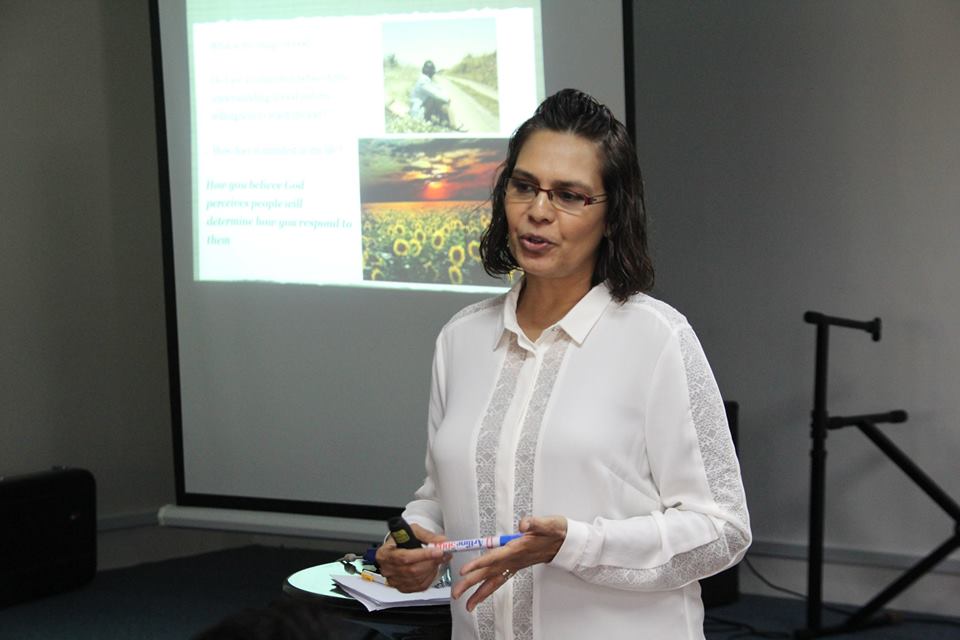
Wherever we are, we have roles as God’s salt and light to the world. Recently, 4 churches came together to organize a conference. This conference aimed to transform the spiritual climate of the nation’s young generation, place it on a strong foundation, and build it up from there. Among the workshops was one on effective workplace ministry, led by Juliana French.
Juliana French is a lecturer at a local university and considers her job her vocation and calling. One call that God has made on her life is that of intercession. In the workshop, she shared many practical pointers about effective ministry from her experience in the workplace.

Why is workplace ministry important? Foremost, because it is a mandate from God that every follower of Christ ought to make disciples (Matthew 28:19-20). Additionally, in a survey conducted by Robert Foster, it was found that only 3% of Christians have been called to full-time ministry; the rest are in the marketplace.
The question is, do we believe the work that we do is significant to God? We spend 40 hours a week at work. Are we aware that there should not be a difference between who we are as Christians and what we do in the marketplace? For marketplace Christians, the workplace is the missions field and many of our colleagues sheep that still do not belong to the flock of our Good Shepherd.
Where do we start, and how do we start? Scripture affirms our identities and God’s hand upon our work. But before we can be effective ministers for God, we must first understand what evangelism is. Evangelism is not self-righteousness, trying to impress others and imposing ourselves and our beliefs on them. Charles Spurgeon defines “evangelising” as “one beggar telling another where to get bread”. In the Greek, the word means to proclaim or announce the Good News.

Ms Juliana said that the chief principle in ministering to others is to bring the reality of God to them. Who is God to us? He is our Father, our Sustainer, our Friend, the Almighty, our Healer, and our Saviour. We can only give others what we have. If God is real to us and is our hope, we bring others to God so they too can receive that hope.
True evangelism is found in the heart of God, and the answer to the question of where evangelism comes from is found only in God’s character. The very nature of God – His love, His mercy, His constant calling of people unto Himself reveals the most basic and strongest motive for evangelism.
There are several questions that will help us become effective in workplace ministry. Firstly, what is our image of God? Do we see a connection between our understanding of God and our willingness to reach the lost? If so, how does it manifest in our lives? How we believe God perceives people will determine how we respond to them.

Ms Juliana reminded us that we have an awesome and remarkable God to share with others. Christ is unique in His person – He is the Way, the Truth, and the Life; in His birth – He was born of a virgin womb and is God Who became man; in His death – He takes away sin and sets us free; in His resurrection and ascension – He won victory over death, power over evil, and reigns forever… And Christ came for our colleagues too. How can we not share Him with them?
During the workshop, participants took part in practical exercises and mock scenarios. One of the areas was in using testimony as a tool. Through testimony, we witness that God Is and that He is good. We present Him the way that people need, and we remember the most important points they need to hear, not what we want to tell them. Remember that God is the message.

One specific instrument is recalling an unforgettable experience in our lives. Ms Juliana provided a structure which we can enlarge on. Provide the context; introduce it and give details on the When, the Why, the How/Processes, and theWhat if necessary, before we close the conversation. Through many such testimonies shared in the workshop from actual life, it became clear that God employs each person through unique circumstances and personalities.
Another way we can share about God is through “wording it out”. One example is through writing. 2 Corinthians 3:3 says we are letters from Christ, written not with ink but through the Spirit of God. We can write little notes or e-mail messages with love, say, for a colleague who is facing a problem. Words are powerful.
We need to have genuine care for the person we’re writing to, be personal in our connection and treat them as real human beings or friends, not as objectives or agendas. This is especially so in our conservative and wall-building Asian culture. We should learn to be a little more open and vulnerable in the way we write to others. When we are honest like this it is easier to draw people out to share more of their experiences. This will open the door, enabling us to share Jesus.

In practical terms, some ways we can share the Good News with others through writing is by taking a Bible story and paraphrasing it through our own experience. Another way is through Pop Corn Writing. Start with the mood and sentiment, and as ideas pop from the initial sentiment, start to bring in the message of the hope found in Christ.
Above all, remember that practice and every small gesture counts. Every prayer prayed makes a difference. Every word shared plants a seed. Some of us will plant the seed, some of us will water and take care of the crop, and others will harvest the field. Whilst we may have different roles, everything matters.
|Share The Good News|
Jason Law




Great to see God moving in the marketplace in Malaysia. Thank you Juliana French. The marketplace ministries has a critical role in the end times.
God bless.